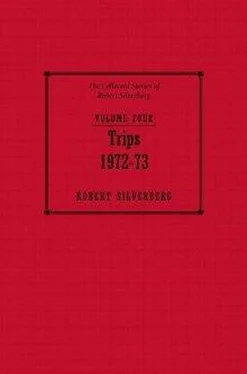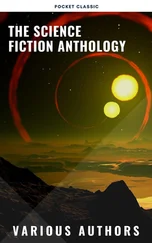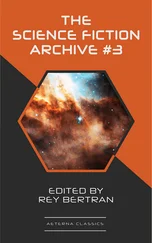Robert Silverberg - The Science Fiction Hall of Fame
Здесь есть возможность читать онлайн «Robert Silverberg - The Science Fiction Hall of Fame» весь текст электронной книги совершенно бесплатно (целиком полную версию без сокращений). В некоторых случаях можно слушать аудио, скачать через торрент в формате fb2 и присутствует краткое содержание. Год выпуска: 2009, ISBN: 2009, Издательство: Subterranean Press, Жанр: Фантастика и фэнтези, на английском языке. Описание произведения, (предисловие) а так же отзывы посетителей доступны на портале библиотеки ЛибКат.
- Название:The Science Fiction Hall of Fame
- Автор:
- Издательство:Subterranean Press
- Жанр:
- Год:2009
- ISBN:978-1-59606-212-2
- Рейтинг книги:4 / 5. Голосов: 1
-
Избранное:Добавить в избранное
- Отзывы:
-
Ваша оценка:
- 80
- 1
- 2
- 3
- 4
- 5
The Science Fiction Hall of Fame: краткое содержание, описание и аннотация
Предлагаем к чтению аннотацию, описание, краткое содержание или предисловие (зависит от того, что написал сам автор книги «The Science Fiction Hall of Fame»). Если вы не нашли необходимую информацию о книге — напишите в комментариях, мы постараемся отыскать её.
The Science Fiction Hall of Fame — читать онлайн бесплатно полную книгу (весь текст) целиком
Ниже представлен текст книги, разбитый по страницам. Система сохранения места последней прочитанной страницы, позволяет с удобством читать онлайн бесплатно книгу «The Science Fiction Hall of Fame», без необходимости каждый раз заново искать на чём Вы остановились. Поставьте закладку, и сможете в любой момент перейти на страницу, на которой закончили чтение.
Интервал:
Закладка:
He gestured to his assistant, who gradually brought the great computer throbbingly to life. A subtle, barely perceptible flow of energy pervaded the air: the neutrino flux that the master equations had redicted. In the amphitheatre adjoining the laboratory, ten thousand people sat tensely frozen. All about the world, millions more, linked by satellite relay, waited with similar intensity. The professor nodded. Another gesture, and Hagley, with a grand flourish, fed the question tape—programmed under the supervision of a corps of multispan-trained philosophers—into the gaping jaws of the input slot.
“The meaning of life,” murmured Kholgoltz. “The solution to the ultimate riddle. In just another moment it will be in our hands.”
An ominous rumbling sound came from the depths of the mighty thinking machine. And then—
My recurring nightmare: A beam of dense emerald light penetrates my bedroom and lifts me with an irresistible force from my bed. I float through the window and hover high above the city. A zone of blackness engulfs me and I find myself transported to an endless onyx-walled tunnel-like hallway. I am alone. I wait, and nothing happens, and after an interminable length of time I begin to walk forward, keeping close to the left side of the hall. I am aware now that towering cone-shaped beings with saucer-size orange eyes and rubbery bodies are gliding past me on the right, paying no attention to me. I walk for days. Finally the hallway splits: nine identical tunnels confront me. Randomly I choose the leftmost one. It is just like the last, except that the beings moving toward me now are animated purple starfish, rough-skinned, many- tentacled, a globe of pale white fire glowing at their cores. Days again. I feel no hunger, no fatigue; I just go marching on. The tunnel forks once more. Seventeen options this time. I choose the rightmost branch. No change in the texture of the tunnel—smooth as always, glossy, bright with an inexplicable inner radiance—but now the beings flowing past me are spherical, translucent, paramecioid things filled with churning misty organs. On to the next forking place. And on. And on. Fork after fork, choice after choice, nothing the same, nothing ever different. I keep walking. On. On. On. I walk forever. I never leave the tunnel.
What’s the purpose of life, anyway? Who if anybody put us here, and why? Is the whole cosmos merely a gigantic accident? Or was there a conscious and determined Prime Cause? What about free will? Do we have any, or are we only acting out the dictates of some unimaginable, unalterable program that was stencilled into the fabric of reality a billion years ago?
Big resonant questions. The kind an adolescent asks when he first begins to wrestle with the nature of the universe. What am I doing brooding over such stuff at my age? Who am I fooling?
This is the place. I have reached the center of the universe, where all vortices meet, where everything is tranquil, the zone of stormlessness. I drift becalmed, moving in a shallow orbit. This is ultimate peace. This is the edge of union with the All. In my tranquillity I experience a vision of the brawling, tempestuous universe that surrounds me. In every quadrant there are wars, quarrels, conspiracies, murders, air crashes, frictional losses, dimming suns, transfers of energy, colliding planets, a multitude of entropic interchanges. But here everything is perfectly still. Here is where I wish to be.
Yes! If only I could remain forever!
How, though? There’s no way. Already I feel the tug of inexorable forces, and I have only just arrived. There is no everlasting peace. We constantly rocket past the miraculous center toward one zone of turbulence or another, driven always toward the periphery, driven, driven, helpless. I am drawn away from the place of peace. I spin wildly. The centrifuge of ego keeps me churning. Let me go back! Let me go! Let me lose myself in that place at the heart of the tumbling galaxies!
Never to die. That’s part of the attraction. To live in a thousand civilizations yet to come, to see the future millennia unfold, to participate vicariously in the ultimate evolution of mankind—how to achieve all that, except through these books and magazines? That’s what they give me: life eternal and a cosmic perspective. At any rate they give it to me from one page to the next.
The signal sped across the black bowl of night, picked up again and again by ultrawave repeater stations that kicked it to higher energy states. A thousand trembling laser nodes were converted to vapor in order to hasten the message to the galactic communications center on Manipool VI, where the emperor awaited news of the revolt. Through the data dome at last the story tumbled. Worlds aflame! Millions dead! The talismans of the Imperium trampled upon!
“We have no choice,” said the emperor calmly. “Destroy the entire Rigel system at once.”
The problem that arises when you try to regard science fiction as adult literature is that it’s doubly removed from our “real” concerns. Ordinary mainstream fiction, your Faulkner and Dostoevsky and Hemingway, is by definition made-up stuff—the first remove. But at least it derives directly from experience, from contemplation of the empirical world of tangible daily phenomena. And so, while we are able to accept The Possessed, say, as an abstract thing, a verbal object, a construct of nouns and verbs and adjectives and adverbs, and while we can take it purely as a story, and aggregation of incidents and conversations and expository passages describing invented individuals and events, we can also make use of it as a guide to a certain aspect of Russian nineteenth-century sensibility and as a key to prerevolutionary radical thought. That is, it is of the nature of an historical artefact, a legacy of its own era, with real and identifiable extra literary values. Because it simulates actual people moving within a plausible and comprehensible real-world human situation, we can draw information from Dostoevsky’s book that could conceivably aid us in understanding our own lives. What about science fiction, though, dealing with unreal situations set in places that do not exist and in eras that have not yet occurred? Can we take the adventures of Captain Zap in the eightieth century as a blueprint for self-discovery? Can we accept the collision of stellar federations in the Andromeda Nebula as an interpretation of the relationship of the United States and the Soviet Union circa 1950? I suppose we can, provided we can accept a science fiction story on a rarefied metaphorical level, as a set of symbolic structures generated in some way by the author’s real-world experience. But it’s much easier to hang in there with Captain Zap on his own level, for the sheer gaudy fun of it. And that’s kiddie stuff.
Therefore we have two possible evaluations of science fiction:
—That it is simple-minded escape literature, lacking relevance to daily life and useful only as self-contained diversion.
—That its value is subtle and elusive, accessible only to those capable and willing to penetrate the experimental substructure concealed by those broad metaphors of galactic empires and supernormal powers.
I oscillate between the two attitudes. Sometimes I embrace both simultaneously. That’s a trick I learned from science fiction, incidentally: “multispan logic,” it was called in Zenger’s famous novel The Mind Plateau. It took his hero twenty years of ascetic study in the cloisters of the Brothers of Aldebaran to master the trick. I’ve accomplished it in twenty years of reading Nova and Deep Space and Solar Quarterly. Yes: multispan logic. Yes. The art of embracing contradictory theses. Maybe “dynamic schizophrenia” would be a more expressive term, I don’t know.
Читать дальшеИнтервал:
Закладка:
Похожие книги на «The Science Fiction Hall of Fame»
Представляем Вашему вниманию похожие книги на «The Science Fiction Hall of Fame» списком для выбора. Мы отобрали схожую по названию и смыслу литературу в надежде предоставить читателям больше вариантов отыскать новые, интересные, ещё непрочитанные произведения.
Обсуждение, отзывы о книге «The Science Fiction Hall of Fame» и просто собственные мнения читателей. Оставьте ваши комментарии, напишите, что Вы думаете о произведении, его смысле или главных героях. Укажите что конкретно понравилось, а что нет, и почему Вы так считаете.












